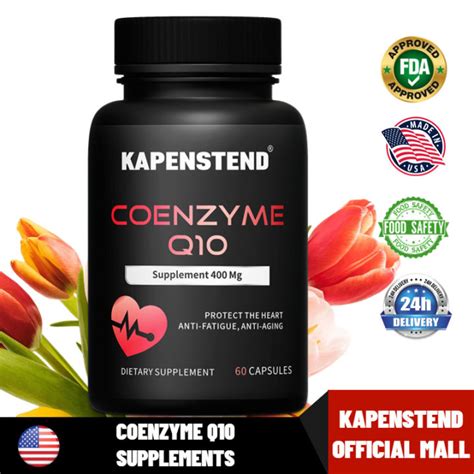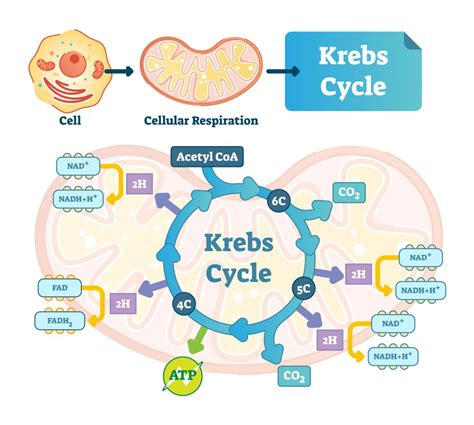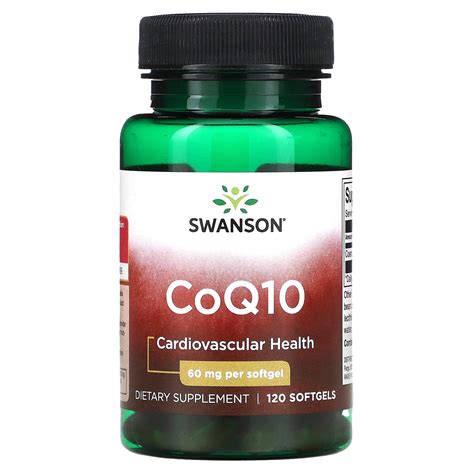In the ongoing quest for optimal health and peak performance, men often focus on protein, carbohydrates, and the well-known spectrum of essential vitamins and minerals. However, beneath this foundational layer lies a more intricate biological machinery, powered by specific compounds that are less commonly discussed but equally vital. Among these, one particular dietary compound stands out for its indispensable role in supporting the very engines of our cells: the mitochondria.
The Powerhouse Fuel: Coenzyme Q10
The compound in question is Coenzyme Q10 (CoQ10), also known as ubiquinone or ubiquinol. While technically a vitamin-like substance, CoQ10 is not classified as a vitamin because the body can synthesize it. However, its endogenous production often isn’t sufficient, especially under certain conditions or with age. Found in virtually every cell of the human body, CoQ10 is particularly concentrated in organs with high energy demands, such as the heart, liver, and kidneys.

CoQ10’s Indispensable Role in Mitochondria
CoQ10’s critical role lies squarely within the mitochondria, often dubbed the ‘powerhouses’ of the cell. It is an essential component of the electron transport chain (ETC), a series of protein complexes embedded in the inner mitochondrial membrane. Here’s how it works:
- Electron Carrier: CoQ10 acts as a mobile electron carrier, shuttling electrons between complex I (or complex II) and complex III of the ETC. This movement of electrons drives the pumping of protons, creating a gradient that ultimately fuels the synthesis of adenosine triphosphate (ATP) – the body’s primary energy currency.
- ATP Production: Without adequate CoQ10, the efficiency of the electron transport chain is compromised, leading to a reduction in ATP production. This directly impacts all cellular functions, from muscle contraction and nerve impulses to metabolic processes.
- Antioxidant Protection: Beyond energy production, CoQ10 is a powerful lipid-soluble antioxidant. It helps protect mitochondrial membranes from oxidative damage caused by free radicals, which are a byproduct of energy metabolism. This protective role is crucial for maintaining mitochondrial integrity and function over time.

Why CoQ10 is Particularly Critical for Men
While vital for everyone, CoQ10 holds particular significance for men’s health across several key areas:
- Cardiovascular Health: The heart is the body’s most energy-demanding organ. Optimal CoQ10 levels are essential for robust cardiac muscle function, supporting healthy blood pressure and overall cardiovascular well-being.
- Sperm Quality and Fertility: Mitochondria are highly concentrated in the midpiece of sperm, providing the energy required for motility. Studies suggest that CoQ10 supplementation can significantly improve sperm parameters, including count, motility, and morphology, which are crucial factors in male fertility.
- Physical Performance and Recovery: For active men, sufficient CoQ10 supports muscle energy production, helping to enhance exercise performance and potentially accelerate recovery by reducing oxidative stress and inflammation post-workout.
- Age-Related Decline: Natural CoQ10 production in the body decreases significantly with age, starting in the late twenties or early thirties. This decline can contribute to reduced energy levels and increased susceptibility to age-related health issues, making supplementation more relevant for older men.

Sourcing CoQ10: Diet and Supplementation
While the body produces CoQ10, dietary sources can also contribute to its levels. Good food sources include:
- Organ Meats: Heart, liver, and kidney are particularly rich in CoQ10.
- Fatty Fish: Sardines, mackerel, and salmon contain notable amounts.
- Meats: Beef, pork, and chicken are also sources.
- Nuts and Seeds: Pistachios, sesame seeds, and peanuts.
- Oils: Soybean and canola oil.
However, the amount of CoQ10 obtained from diet alone is often insufficient to significantly raise blood levels, especially in individuals with increased needs or impaired absorption. For this reason, supplementation is a common and effective strategy to boost CoQ10 levels. The ubiquinol form of CoQ10 is generally considered to be more bioavailable than ubiquinone, particularly for older individuals or those with compromised digestive function.

Conclusion: Powering Male Vitality from Within
Beyond the macronutrients and the typical array of vitamins and minerals, Coenzyme Q10 stands as a foundational dietary compound for men seeking to optimize their energy, health, and vitality. Its direct and critical involvement in mitochondrial function, ATP production, and antioxidant defense makes it an indispensable player in cellular health. For men looking to support cardiovascular health, enhance fertility, improve physical performance, and combat age-related energy decline, understanding and prioritizing CoQ10 can be a powerful step towards fueling their bodies from the ground up.





